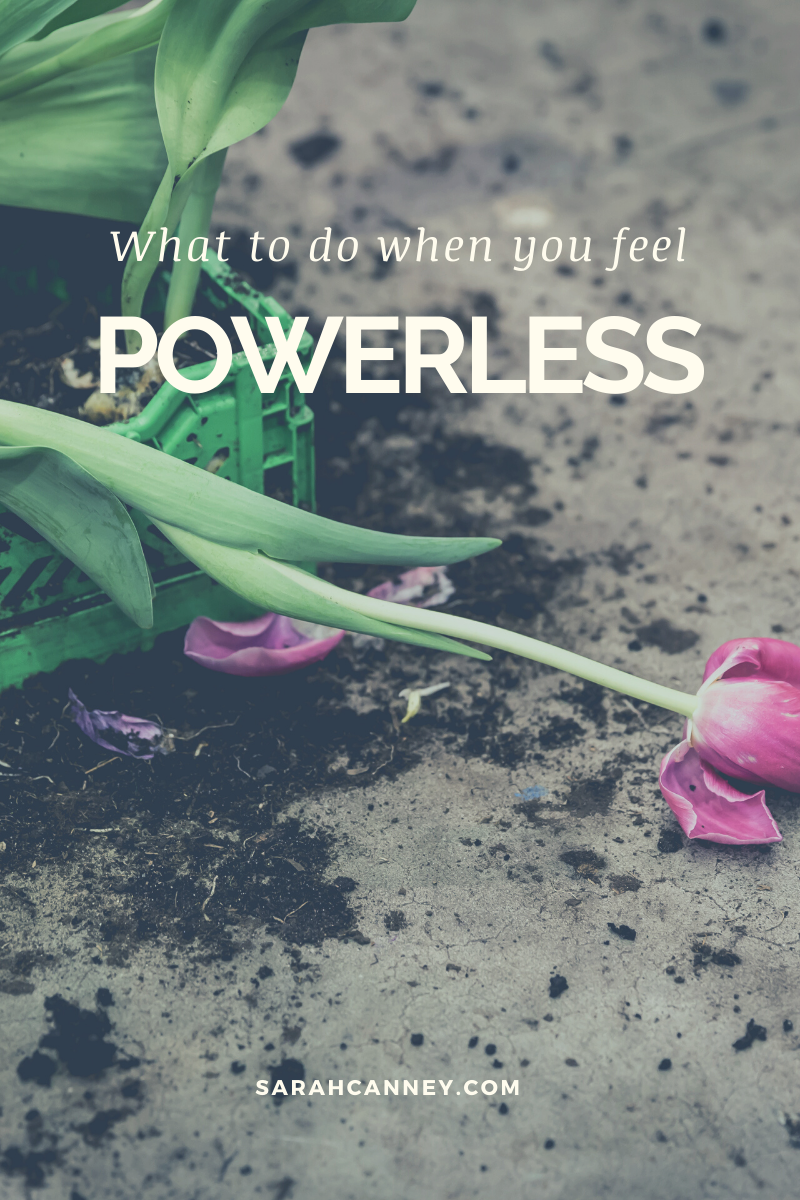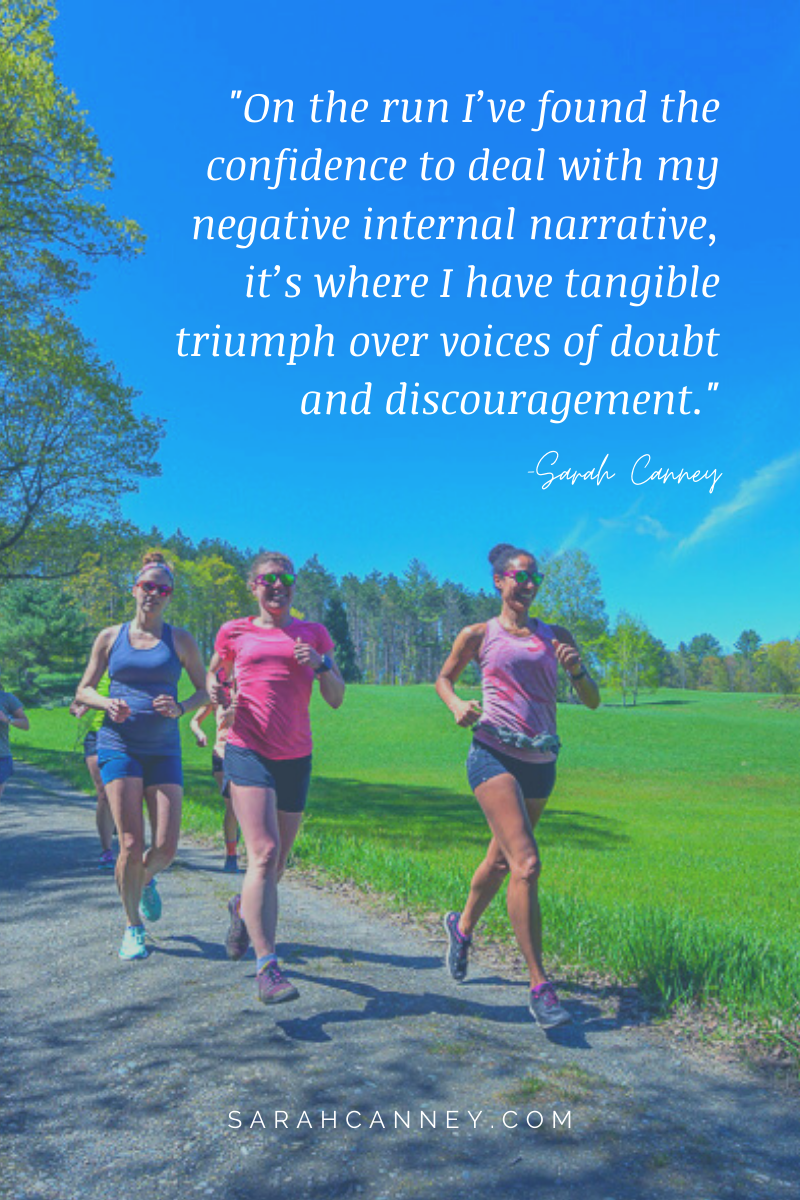What to do when you feel powerless
Why am I even doing this?
I was a mile from my house, standing by the side of the road, kicking around acorns and gravel with toe of my Kinvaras--the shoes I wear when I’m doing tempo or speedwork on the road.
My warm-up was done and I was about to head into a mini-workout, nothing crazy long or hard, just 5x2 minutes. Yet, here I was standing by the side of the road wondering why I even run.
My legs felt heavy, my brain a bit foggy, my usual drive and motivation totally absent. The questions started rolling in: maybe I should scrap this and try again later? Maybe I should just head home and have breakfast with my family, for once? Maybe I should just make this an easy run? Why do you even set running goals anyway? What are you trying to prove?
Aside from the general discomfort of trying to make your body go fast at 6 am, there was something else going on here. Something that I really didn’t have the language to describe until this weekend, when I listened to Chapter 5 of Amy Cuddy’s book, “Presence.”
Over the past few weeks, I haven’t felt like myself--at least not the self that I’ve worked so hard to become as I’ve risen above my eating disordered past. In fact, I’ve felt more like that old self in recent weeks: shaky, doubtful, anxious, and discouraged. A combination of “pandemic fatigue” and a general sense of heartbreak, outrage, and uncertainty when it comes to race relations in our country. I want to make a difference in a real and lasting way, not just with a social media post, and while I’m doing all I can personally it feels overwhelming. I really didn’t have the words to describe how I felt, until Cuddy’s book defined it for me: powerless.
I can remember describing the deepest throws of my struggle with anorexia and bulimia as a feeling of utter powerlessness. But it has been a while since I have used that language or even felt that way. More recently I’ve used terms like “confidence” or “self-doubt” instead of “powerful” or “powerless.” But sometimes when we use the same language we tend to get stuck, while new language can offer a broader perspective. It was in Cuddy’s book that I found that new language and subsequently a shift in how I’m seeing myself and the world at this moment. She summarized what I was feeling so accurately in this statement:
“A change is accompanied by a self-perceived loss of power and strength and followed by feelings of insecurity, anxiety, discouragement, and defeat. Then come the physical manifestations of powerlessness along with loss of confidence and ambition. This depleted state...convinces us that we lack the power to control the situations we are in.”
If there ever was a description for 2020, this would be it: massive amounts of change that feel completely beyond our control resulting in feelings of powerlessness.
Anyone else? Or is it just me?
Hearing those words actually made me feel hopeful. Simply identifying how you’re feeling is often the first step towards changing how you’re feeling. I feel powerless. Just like I did when I was struggling most with my eating disorder and as a result the old narrative--the one of discouragement and hopelessness and defeat--is louder than ever. It was affecting my work, my running, and my general mood.
Out on the run, the powerlessness was getting to me, manifesting as physical fatigue, discouragement, and as Cuddy says “a loss of ambition.”
I gave the acorns and stones, along with my doubts one last kick and looked down the road.
“Sarah,” I said aloud. “This is like life. There’s another life lesson in here somewhere. You can choose to tackle this hard stuff one step at a time or you can avoid it and just go home.”
It was just a workout, but in that moment it felt like a bit more than that.
“Ok, just do one and then you can decide if you’ll do the rest,” I convinced myself.
And so I broke into a jog, picked up the pace and clicked the lap button on my watch and did my best to ‘turn it on.’ When the two minutes was up I glanced down and saw a pace that was dismally slower than where I was ‘supposed’ to be.
“See! You should just scrap the workout,” said the voice of doubt.
Then the truth came in my defense, “You know that the first one is always a warm-up and never indicative of how things will go. Do the second and if it’s still bad, then scrap it.”
I started into the second 2-minute rep, everything still felt hard, but my head was in it this time. One foot in front of the other. When the two minutes were up, I glanced down and saw my pace was exactly where I needed to be and 41 seconds faster per mile than my pace on the first set.
My confidence surged. “See, you just have to stay in it. You just have to let it be messy in the beginning.” I finished out the workout with increasing confidence and went home feeling powerful.
When I think about the difference between feeling powerless and feeling powerful, I often think of running mostly because it’s been out on the run where I’ve found the confidence to deal with my negative internal narrative, it’s where I have tangible triumph over voices of doubt and discouragement. I wanted to quit because it felt hard, but I didn’t. I worked through the discomfort and mini-failure and doubt and I did it. I did it.
After Wednesday’s workout last week, there was a shift in my mentality. Maybe everything does feel out of control. Maybe I do feel powerless when it comes to things like global pandemics and race relations. But I can restore my sense of power, and with it my confidence, by reminding myself of my values and strengths. That’s what I did out on the run: I thought of past workouts and races where I’d felt discouraged, but had turned it around simply by putting one foot in front of the other and staying in the moment.
I applied this same mentality to everything else last week, sitting down write down all my fears, my doubts and the ways in which I felt powerless. And then in a column next to all these negative thoughts, I wrote down the truth.
You all know I’m a fan of journaling, but there’s something very tangible about writing down your thoughts as a way to process emotions and behaviors and move forward. Maybe some of you are feeling powerless too? If you are, let me remind you that there is very little you can change if you come from a place of personal powerlessness. “Feeling powerless undermines our ability to trust ourselves and if we cannot trust ourselves we cannot build trust with others,” says Cuddy.
So how can you restore your personal power?
Write down your personal values. Not sure what those are? Spend some time thinking about the values and principles that inform your life.
Write down your fears and then the truth about those fears.
Write down your doubts and the truth about those doubts.
Remind yourself of your strengths, gifts and unique talents. Write them as “I am...” statements.
If you’re operating from a place of personal power, a place of inner-strength and confidence then there’s so much you CAN do.
One foot in front of the other.
You’ve got this.
-Sarah

